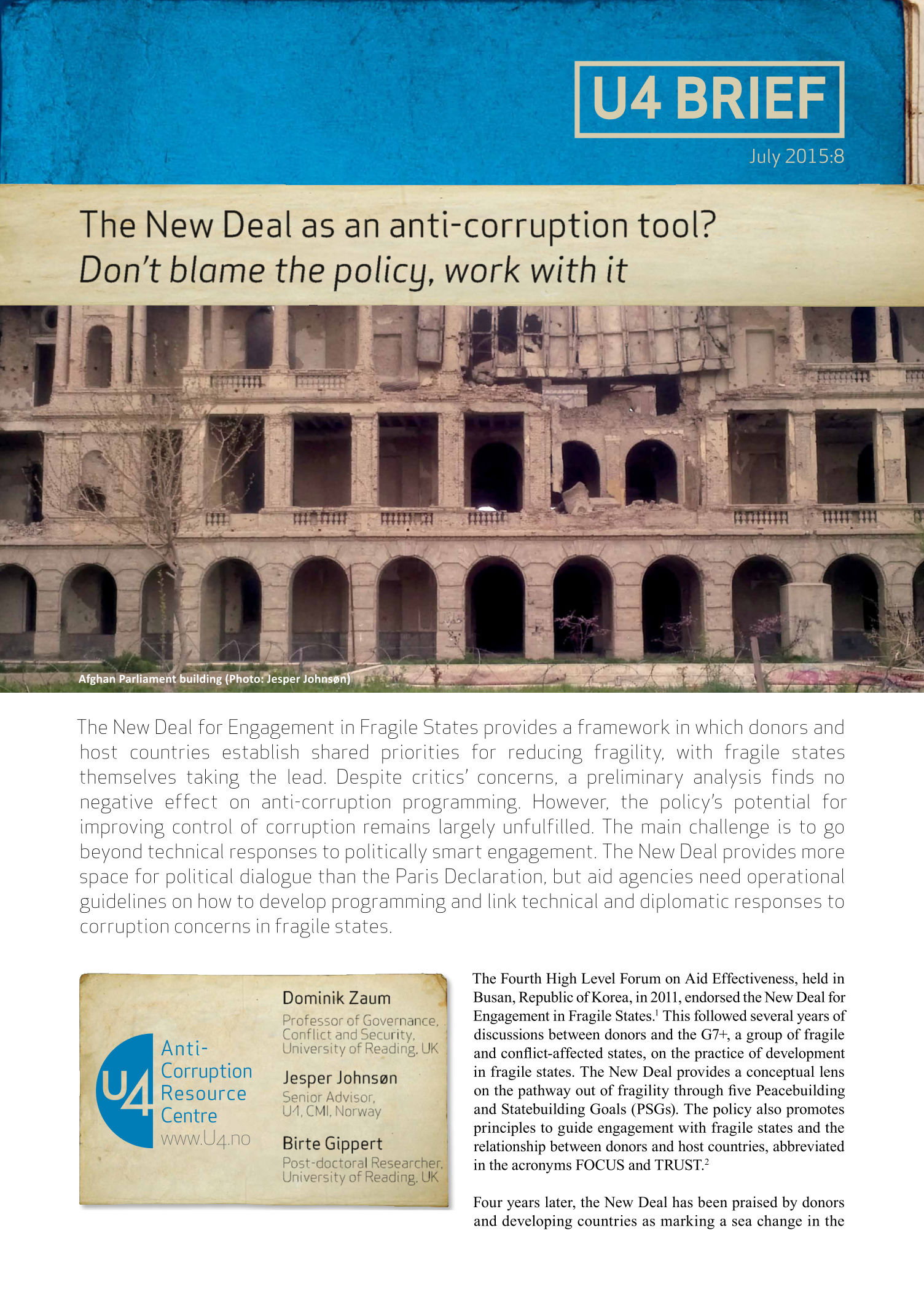U4 Brief
The New Deal as an anti-corruption tool? Don’t blame the policy, work with it
The New Deal for Engagement in Fragile States provides a framework in which donors and host countries establish shared priorities for reducing fragility, with fragile states themselves taking the lead. Despite critics’ concerns, a preliminary analysis finds no negative effect on anti-corruption programming. However, the policy’s potential for improving control of corruption remains largely unfulfilled. The main challenge is to go beyond technical responses to politically smart engagement. The New Deal provides more space for political dialogue than the Paris Declaration, but aid agencies need operational guidelines on how to develop programming and link technical and diplomatic responses to corruption concerns in fragile states.

Cite this publication
Zaum, D.; Johnsøn, J.; Gippert, B. 2015. The New Deal as an anti-corruption tool? Don’t blame the policy, work with it. Bergen: Chr. Michelsen Institute (U4 Brief 2015:8) 6 p
Disclaimer
All views in this text are the author(s)’, and may differ from the U4 partner agencies’ policies.
This work is licenced under a Creative Commons Attribution-NonCommercial-NoDerivatives 4.0 International licence (CC BY-NC-ND 4.0)


